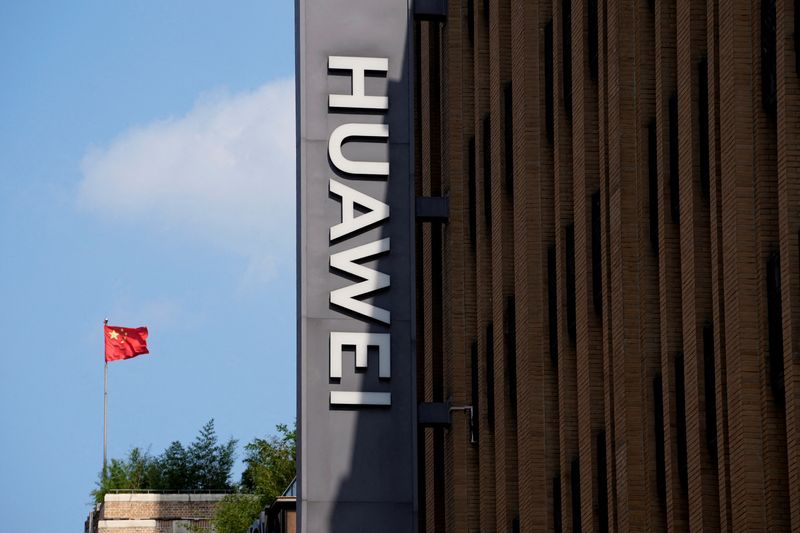By Fanny Potkin
(Reuters) - China's Huawei plans to start mass-producing its most advanced artificial intelligence chip in the first quarter of 2025, even as it struggles to make enough chips due to U.S. restrictions, said two people familiar with the matter.
The telecoms conglomerate has sent samples of the Ascend 910C - its newest chip, meant to rival those made by U.S. AI chipmaker Nvidia (NASDAQ:NVDA) - to some technology firms and started taking orders, the sources told Reuters.
Huawei is at the heart of U.S.-China friction over trade and security. Washington has imposed a series of curbs on Huawei and other Chinese companies, arguing that their technological progress poses a national security risk to the U.S. Beijing, which is trying to make the world's second-biggest economy self-sufficient in advanced semiconductors, denies such claims.
The restrictions have hampered Huawei's ability to get the yield - the proportion of chips that come off the manufacturing line fully functional - of its advanced AI chips high enough for them to be commercially viable.
The 910C is being made by top Chinese contract chipmaker Semiconductor Manufacturing International Corp (SMIC) on its N+2 process, but a lack of advanced lithography equipment has limited the chip's yield to around 20%, said one source who was briefed on the results.
Advanced chips need yields of more than 70% to be commercially viable.
Even Huawei's current most advanced processor, the SMIC-made 910B, has a yield of only around 50%, forcing Huawei to slash production targets and delay filling orders for that chip, the sources said.
Huawei and SMIC did not respond to requests for comment on Thursday.
U.S. RESTRICTIONS BITE
TikTok's Chinese parent, ByteDance, ordered more than 100,000 Ascend 910B chips this year but had received fewer than 30,000 as of July, a pace too slow meet the company’s needs, Reuters reported in September. Other Chinese technology companies that have ordered from Huawei have complained of similar problems, sources have said.
U.S. curbs include barring China since 2020 from obtaining extreme ultraviolet lithography (EUV) technology from Dutch manufacturer ASML (AS:ASML), used to make the world’s most sophisticated processors.
“Huawei knows there is no short-term solution, given the lack of EUVs, so it will give priority to strategic government and corporate orders," the source said.
ASML has also stopped shipping its most advanced deep ultraviolet lithography (DUV) machines to China due to rules imposed by the Biden administration last year. Some fabs have also been restricted from buying older ASML DUV models.
SMIC demands a premium of up to 50% for chips made on its advanced nodes, which are less advanced than those of Taiwanese chip-making giant TSMC, and are made using enhanced ASML DUVs. Huawei has supplemented its SMIC-made chips with ones made by rival TSMC, according to analysts and sources.
TSMC notified the U.S. Commerce Department several weeks ago that one of its chips had been found in a Huawei 910B process. The U.S has placed Huawei on a trade list that requires suppliers to obtain licenses to ship any goods or technology to the company.

Washington has since clamped down further, ordering TSMC to halt shipments of advanced AI chips to Chinese customers, in a move targeting the diversion of chips to Huawei.
U.S. authorities are planning export controls on the semiconductor industry that will further restrict shipments for Chinese firms. Donald Trump, who was president from 2017 to 2021 and will return to the White House in January, has made tough-on-China trade policies core to his economic agenda.